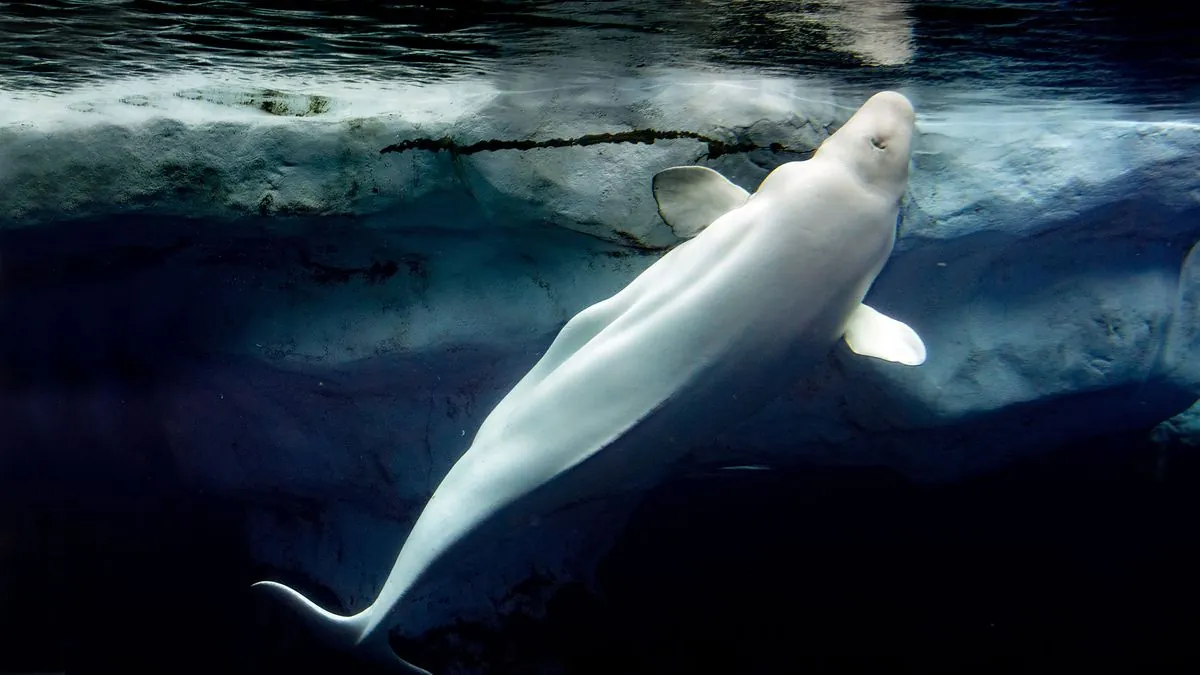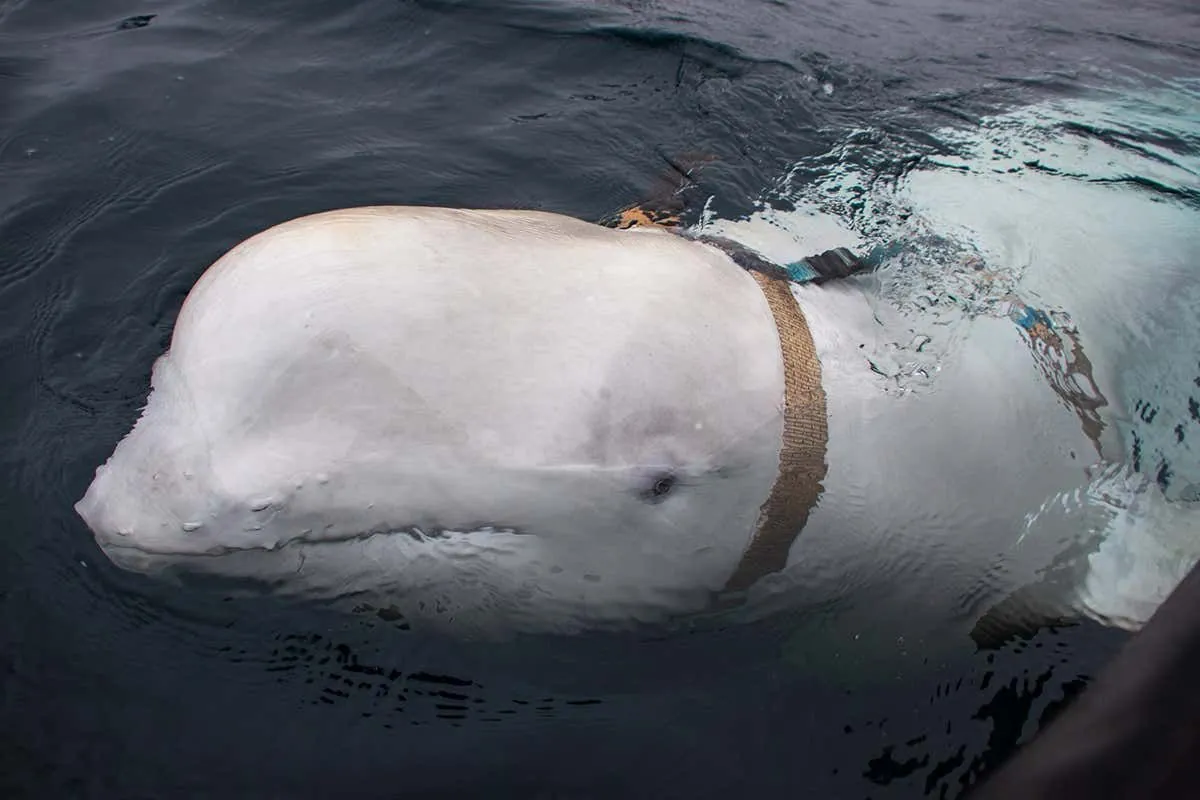Norwegian Beluga's Death Linked to Bacterial Infection, Not Foul Play
A beluga whale, once suspected of being a Russian spy, died from a bacterial infection, not gunshot wounds as previously claimed. Norwegian police ruled out foul play after a thorough autopsy.

The mysterious beluga whale that captured international attention has met a natural end, contrary to earlier speculations. Norwegian authorities have concluded that the cetacean, nicknamed "Hvaldimir," succumbed to a bacterial infection rather than foul play.
Amund Preede Revheim, head of the North Sea and Environment section of the police in southwestern Norway, stated, "The probable cause of death was bacterial infection - possibly as a result of a wound in the mouth from a stuck stick." This finding dispels claims made by animal rights groups OneWhale and NOAH, who had suggested the whale was intentionally killed.
The beluga, first spotted in 2019 near Russian waters, gained notoriety due to a harness it wore bearing the inscription "Equipment St. Petersburg." This led to widespread speculation about its origins and purpose. Belugas are known for their intelligence and have been successfully kept in captivity and trained for various purposes, including potential military applications.

Hvaldimir's story highlights the fascinating characteristics of beluga whales. These Arctic and sub-Arctic dwellers, also known as white whales, are highly social animals often living in pods of 10 to 100 individuals. They possess a remarkable ability to change the shape of their forehead, or melon, allowing them to make facial expressions.
The autopsy of Hvaldimir was complicated by the advanced decomposition of its organs. Police reported that x-rays of the chest and head revealed no projectiles or metal fragments, effectively ruling out gunshot wounds. The whale's empty stomach and the presence of a 35-centimeter long stick wedged in its mouth provide insights into its final days.
Belugas are known for their varied diet, which includes fish, squid, and crustaceans. They can dive to depths of 800 meters and are capable of swimming backwards. These adaptable creatures have a lifespan of 35-50 years in the wild and are recognized for their wide range of vocalizations, earning them the nickname "sea canaries."
While Hvaldimir's death marks the end of a captivating story, it also draws attention to the broader issues facing beluga whales. With a global population estimated at around 150,000, these marine mammals are considered vulnerable to extinction by the IUCN. They face challenges from climate change, pollution, and in some regions, subsistence hunting by indigenous Arctic peoples.
The case of Hvaldimir serves as a reminder of the complex relationship between humans and marine life. As we continue to study and interact with these intelligent creatures, it's crucial to prioritize their conservation and well-being. The beluga's ability to mimic human speech and their playful nature in captivity have endeared them to many, but their true place is in the vast, icy waters of their natural habitat.
"Assessments made by the Veterinary Institute and the police's forensic technicians are that these are not gunshot wounds. X-rays of the chest and head were carried out without any projectiles or other metal fragments being detected."
As we reflect on Hvaldimir's journey, from a suspected spy to a beloved marine celebrity, we're reminded of the importance of scientific inquiry and the need to approach wildlife-related stories with skepticism and care. The beluga's legacy will undoubtedly contribute to our understanding of these remarkable creatures and their place in our changing world.


































